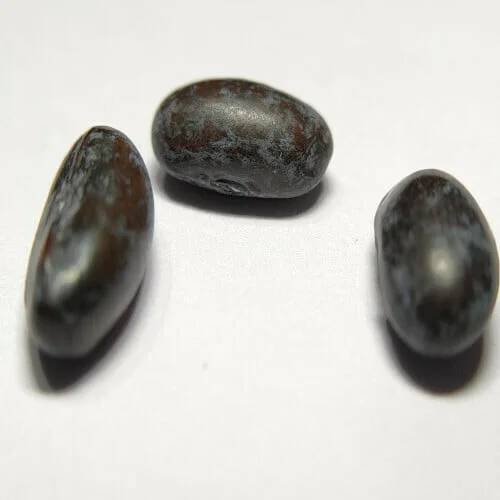Beans Seeds (10 seeds)
₹10.0
Beans is a leguminous plant that is rich in protein. It is used in fresh or dried form. Try our Non-GMO Beans Seeds. Also, check out our workshops for more details.
PRODUCT DESCRIPTION
Number of seeds in a packet – 10
PLANT DESCRIPTION
- Difficulty Level – easy
- Plant Height – 30 – 40 cm
- Type – outdoor
- Feed – Vermicompost for nutrients every week, Seaweed once a month for greener leaves, and Epsom salt for better blooming once a month
- Watering – 3 times a week
- Sunlight – full sunlight
- Germination Time – 4 – 10 days
- Fruiting Time – 4 weeks
- Harvesting Time – 7 weeks
- Suitable Temperature – 60°F – 85°F
- Season – annual
- Sowing – april – may
HOW TO GROW BEANS FROM SEEDS
- Soak the seeds for 10 – 24 hours before planting.
- Take a Seedling Tray and fill it with Cocopeat.
- Make ½ inch deep hole and put 1 seed in each hole.
- Fill the hole with Cocopeat and spray with water using a spray gun or spray bottle.
- Water 3 times a week.
- Seeds will germinate within 4 – 10 days.
- Full sunlight is needed.
- Re-pot the sapling to a Medium Pot in 18 – 22 days.
- The harvest time is 7 weeks.
ALTERNATE METHOD
- Take a Medium Size Pot and add a Potting Mix.
- If planting in the soil add Neem Cake Powder, Vermicompost, and Seaweed.
ALTERNATE NAME
Botanical name: Phaseolus vulgaris
beans seeds in hindi: beens beej (बीन्स बीज)
beans seeds in tamil: pins vitai (பீன்ஸ் விதை)
beans seeds in telugu: bins sid (బీన్స్ సీడ్)
beans seeds in kannada: bins bija (ಬೀನ್ಸ್ ಬೀಜ)
beans seeds in marathi: binsa biyane (बीन्स बियाणे)
beans seeds in malayalam: beens vithu (ബീൻസ് വിത്ത്)
You must be logged in to post a review.
Q & A
The sustainability of vegetable seeds can be evaluated based on several factors. Here are some key considerations:
Genetic Diversity: Maintaining a wide range of genetic diversity in vegetable seeds is crucial for long-term sustainability. A diverse gene pool enables plants to adapt to changing environmental conditions and helps prevent susceptibility to pests and diseases. Conservation efforts, such as seed banks and community seed-saving initiatives, play a vital role in preserving genetic diversity.
Open-Pollinated and Heirloom Varieties: Open-pollinated and heirloom vegetable seeds are generally more sustainable than hybrid or genetically modified varieties. Open-pollinated seeds can be saved and replanted, allowing for self-reliance and the preservation of traditional varieties. Heirloom seeds have a rich history and cultural significance, often passed down through generations.
Organic and Non-GMO: Choosing organic and non-genetically modified organism (GMO) seeds promotes sustainability. Organic seeds are produced without synthetic pesticides, fertilizers, or genetic engineering. Non-GMO seeds are not genetically modified, ensuring the preservation of natural genetic traits and preventing potential environmental and health risks associated with GMOs.
Seed Sovereignty: Supporting local seed producers and maintaining seed sovereignty is crucial for sustainability. Small-scale farmers and seed companies that focus on preserving local varieties help foster regional biodiversity and self-sufficiency. By sourcing seeds from local suppliers, you can contribute to the sustainability of the seed industry.
Seed Saving and Exchange: Seed-saving practices are essential for sustainability. Saving seeds from open-pollinated vegetables allows you to preserve desirable traits and reduce reliance on external seed sources. Participating in seed exchanges or joining community seed libraries encourages biodiversity and strengthens local seed networks.
Ecological Impact: Consider the ecological footprint associated with seed production. Look for seed companies that prioritize sustainable farming practices, such as minimizing water usage, reducing chemical inputs, and promoting ecological balance. Supporting companies with transparent and sustainable supply chains can help ensure the overall sustainability of vegetable seeds.
Adaptation to Local Conditions: Choosing vegetable seeds adapted to your local climate and growing conditions enhances sustainability. Locally adapted seeds are more likely to thrive, reducing the need for excessive resource inputs and enhancing overall plant health and productivity.
By considering these factors, you can make more sustainable choices when it comes to vegetable seeds, contributing to the preservation of biodiversity, traditional varieties, and the long-term viability of our food systems.
General Inquiries
There are no inquiries yet.


















Reviews
There are no reviews yet.